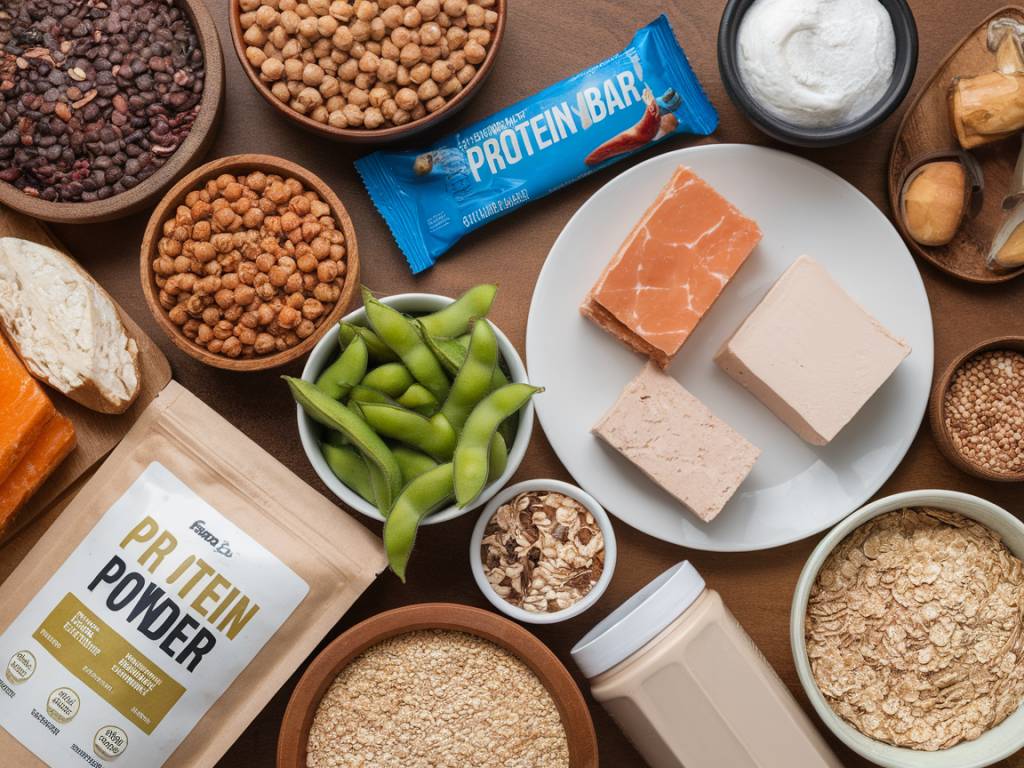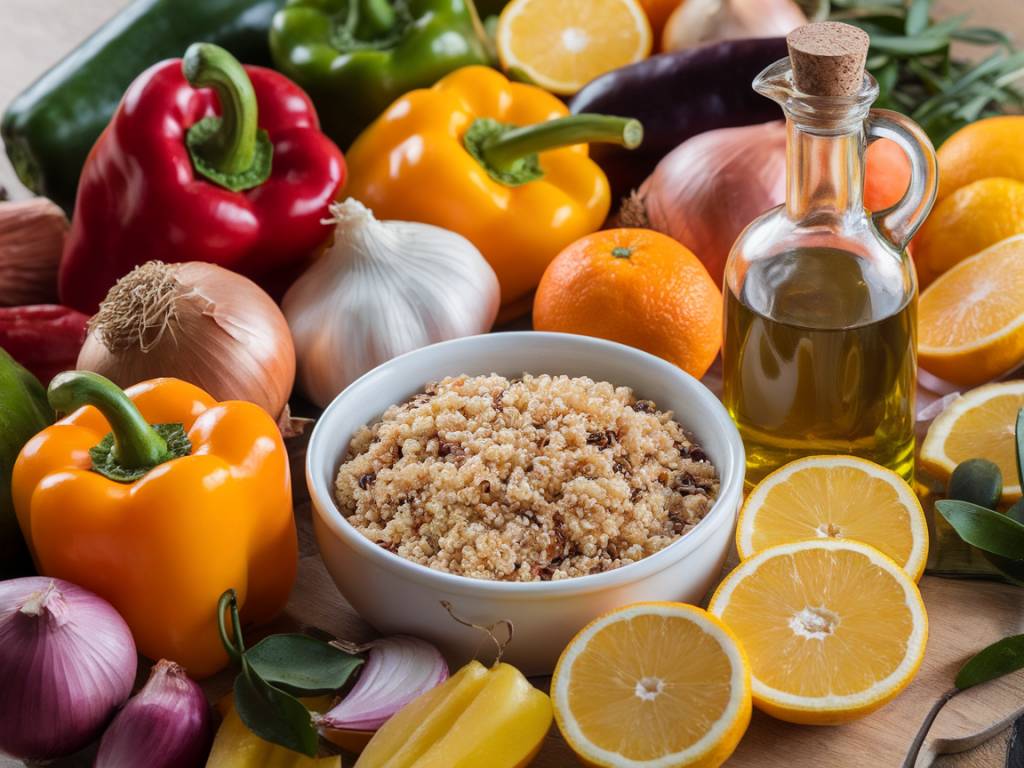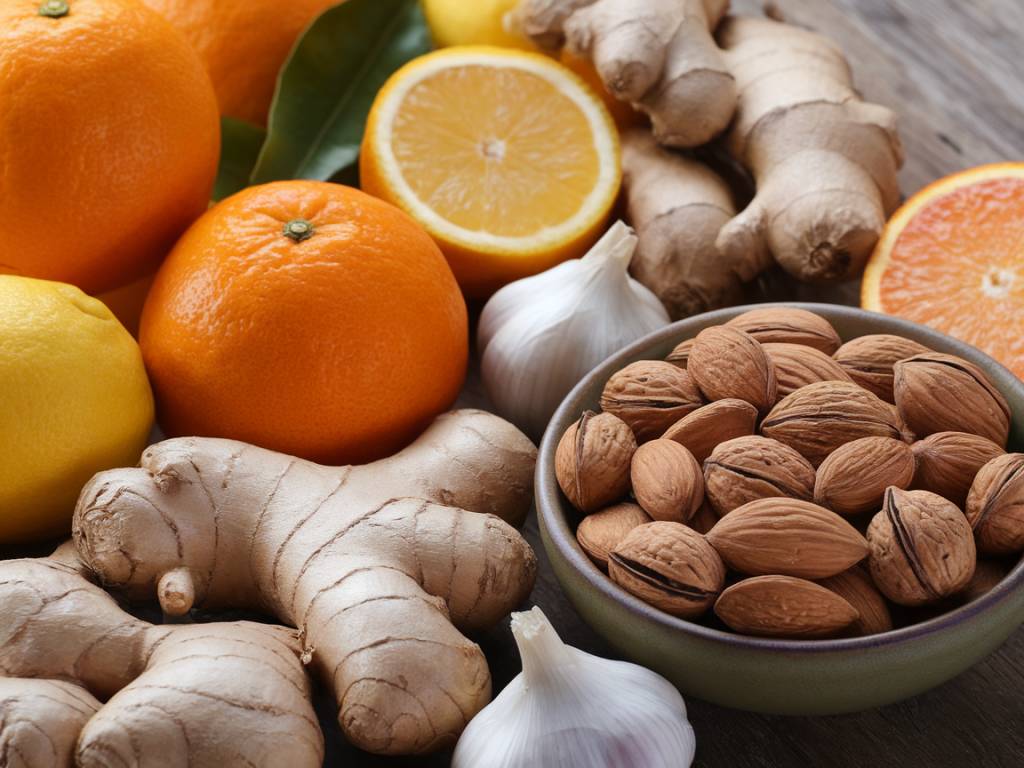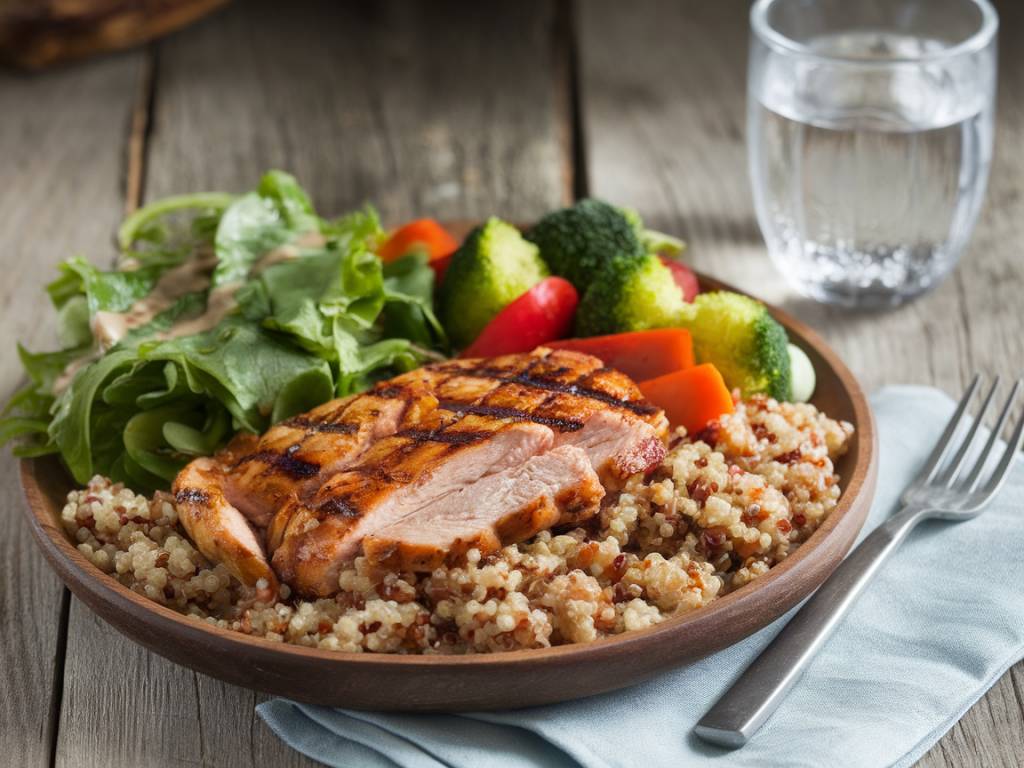Why Plant-Based Proteins Are Essential for Muscle Growth
When it comes to building muscle and optimizing recovery, protein plays a crucial role. While animal-based sources like chicken, eggs, and whey protein have long been the go-to, plant-based proteins are just as effective—if not more—for muscle growth and recovery. They come packed with fiber, antioxidants, and essential amino acids necessary for repairing and strengthening muscle fibers.
But which plant-based protein sources should you prioritize? Let’s dive into some of the best options that will support your strength and recovery while keeping your diet clean and balanced.
Top Plant-Based Protein Sources for Muscle Growth
Lentils: The Protein-Packed Powerhouse
Lentils are a true muscle-building gem. With around 18 grams of protein per cooked cup, they offer a balanced mix of protein and fiber to support muscle recovery and gut health.
Additionally, lentils are rich in iron, an essential nutrient for oxygen transport in the blood, helping to improve endurance and recovery post-exercise. Whether you add them to soups, stews, or salads, lentils are a versatile addition to any high-protein plant-based meal plan.
Chickpeas: Versatile and Nutrient-Dense
Chickpeas offer 15 grams of protein per cooked cup while also providing complex carbohydrates for sustained energy. This combination makes them an excellent choice for both pre- and post-workout meals.
Want to maximize your chickpea intake? Try them in hummus, roasted as a crunchy snack, or tossed into a protein-rich grain bowl.
Quinoa: A Complete Protein Source
Unlike many other plant-based proteins, quinoa is a complete protein, meaning it contains all nine essential amino acids necessary for muscle repair and growth. A cooked cup delivers 8 grams of protein, along with a good dose of magnesium, which aids in muscle relaxation and recovery.
For an easy protein-boost, add quinoa as a base for salads, mix it into veggie burgers, or use it as an alternative to traditional rice dishes.
Tofu and Tempeh: The Ultimate Muscle-Building Duo
Both tofu and tempeh pack a serious protein punch:
- Tofu: About 10 grams of protein per 100 grams
- Tempeh: An impressive 19 grams of protein per 100 grams
Fermented tempeh is also rich in probiotics, which support gut health and digestion—an underrated factor in optimizing muscle gains. These soy-based proteins can be grilled, sautéed, or blended into shakes for a delicious and satisfying muscle-fueling meal.
Hemp Seeds: Small but Mighty
Hemp seeds may be tiny, but they deliver a powerful protein boost with 9 grams of protein per 3 tablespoons. They also provide an ideal balance of omega-3 and omega-6 fatty acids, reducing inflammation and aiding recovery.
Sprinkle them over oatmeal, blend them into smoothies, or mix them into your favorite dairy-free yogurts for an easy way to up your protein intake.
Spirulina: The Superfood Protein Source
Spirulina, a blue-green algae, contains an impressive 60-70% protein by weight, making it one of the most protein-dense plant foods available. Just two tablespoons provide around 8 grams of protein, along with essential micronutrients such as B vitamins and antioxidants that support overall health.
Blend spirulina into smoothies, mix it into energy balls, or stir it into soups for an easy nutritional upgrade.
Edamame: A Muscle-Boosting Snack
Edamame, or young soybeans, offer 17 grams of protein per cooked cup, along with fiber, iron, and vitamin K. These little green powerhouses make an excellent post-workout snack or a great protein addition to salads and stir-fries.
Need a quick snack? Boil some edamame, sprinkle them with sea salt, and enjoy them straight from the pod!
Nuts and Nut Butters: Protein and Healthy Fats Combined
Almonds, peanuts, and cashews all contain decent amounts of protein. A handful of almonds provides 6 grams, while peanut butter delivers around 8 grams per two tablespoons. The added benefit? Their healthy fats help with satiety and energy balance.
Be sure to choose natural, unsweetened nut butters to avoid unnecessary additives. Spread them on whole-grain toast, mix them into smoothies, or simply enjoy a spoonful straight from the jar.
Maximizing Muscle Growth with Plant-Based Proteins
To get the most out of your plant-based protein intake, here are a few key strategies:
- Combine Protein Sources: Because some plant proteins may lack certain amino acids, combining foods like beans and rice or quinoa and chickpeas ensures a complete amino acid profile.
- Eat Enough Calories: Muscle growth requires adequate calories, so make sure you’re not cutting calories too drastically.
- Time Your Protein Intake: Aim to consume protein-rich meals both before and after workouts to maximize muscle recovery.
- Stay Consistent: Like any diet, results come from consistency. Stick to a variety of plant-based protein sources to keep things interesting and nutrient-dense.
With these high-quality plant-based protein sources in your diet, you’ll fuel muscle growth and recovery just as effectively as with any animal-based protein. Plus, you’ll enjoy additional benefits such as improved digestion, reduced inflammation, and a lower environmental footprint.
Ready to take your plant-based muscle-building game to the next level? Start incorporating these protein-rich foods today and experience the difference for yourself!



